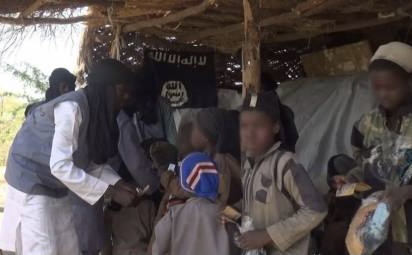There are no products in your shopping cart.
| 0 Items | £0.00 |


BOKO Haram and his splinter group the Islamic State West Africa Province (Iswap) have both been involved in the distribution of Ramadan welfare parcels to residents of Borno and Yobe states as they observe the month-long fasting period.
Over the last month, Nigerian Muslims, like their counterparts elsewhere in the world have been observing the holy month of Ramadan. As is the tradition everywhere, food parcels are handed to the less privileged to enable break the fast every evening and it appears that Boko Haram and Iswap have been exploiting the period by using it as a way to recruit new members.
Since 2009, Boko Haram has been waging a war against the Nigerian state with the pendulum constantly swinging one way and then the other. At the moment, Boko Haram still controls large swathes of territory in Borno State across northeast Nigeria where it operates with impunity despite a heavy security presence.
Over the last week, Iswap and Bo0ko Haram fighters have been filmed distributing food parcels that included rice, beans, millet, maize, sugar, spaghetti and cash gifts to local residents in Borno and Yobe states. One security source said the gesture was to induce the villagers to join the group’s ranks as militants.
He added: “Imagine, they claimed that the gesture was aimed at assisting villagers to perform Ramadan fast and Sallah with ease and happiness. The same villagers they killed their friends and family members."
A 2019 report by the International Crisis Group (ICG), observed that Iswap’s approach to recruiting new fighters proved effective. Despite breaking away from the Abubakar Shekau-led Boko Haram faction in 2016, the population of its fighters has roughly doubled according to estimates because of its softer approach to recruitment.
An ICG spokesman said: “Although its leadership has been largely ethnic Kanuri, Iswap has recruited significantly among lacustrine communities, notably the ethnic Buduma, many of whom earn a living from fishing.”
Institute for Security Studies senior researcher Remadji Hoinathy, added: “As part of this approach, the ideological aspect of the crisis must be dealt with. The ability of the group to recruit is one of the biggest reasons for its expansion and so a deeper understanding of its recruitment patterns and operating mechanisms is crucial.”